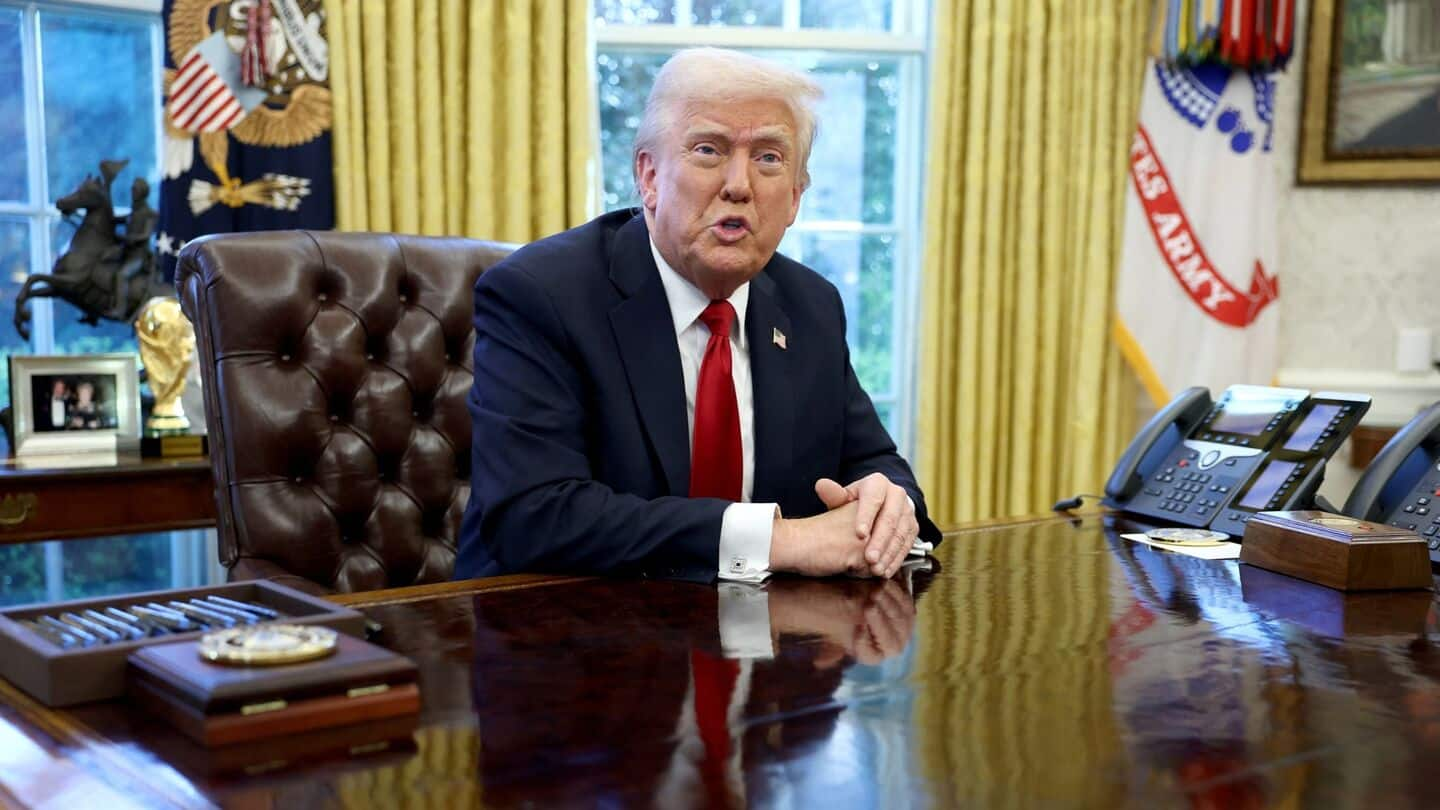
Auto shares plunge as Trump announces 25% tariffs on cars
What's the story
US President Donald Trump has announced a 25% tariff on foreign-made cars and light trucks from April 2. The move is part of a larger trade war to boost domestic manufacturing jobs.
The White House said the tariffs will also cover key automobile parts such as engines, transmissions, powertrain components, and electrical parts.
The announcement has already dropped shares of major automakers like General Motors, Ford Motor, and Stellantis NV by up to 6% in after-hours trading.
Market impact
Asian auto manufacturers bear the brunt
Asian automakers witnessed a major plunge in their shares after Trump's tariff announcement.
Toyota and Honda's shares fell by almost 4% and 3%, respectively.
Other affected companies include Nissan (which has two plants in Mexico) which saw a drop of 3%, Mazda Motor (over 6% decline), Mitsubishi Motor (-5%), South Korea's Kia Motors (-3%), China's Nio (-4%), and Xpeng (-2%).
Hyundai is protected from Trump's new tariffs thanks to its record $21 billion investment in US manufacturing.
Revenue projection
Tariffs expected to generate $100 billion in annual revenue
The new tariffs are expected to bring in over $100 billion annually for the US, White House aide Will Scharf said.
However, the complete details of this proclamation remain murky considering cars consist of parts from various countries.
Karl Brauer, executive analyst at iSeeCars, pointed out that every automaker selling cars in America depends on global supply chains for automotive parts, many of which come from China.
This could either hike production costs or increase prices for consumers.
International response
European Union and Canadian officials criticize US tariffs
European Commission President Ursula von der Leyen slammed the tariffs on social media platform X, saying the EU will continue to seek negotiated solutions while protecting its economic interests.
Canadian Prime Minister Mark Carney called the US tariffs a "direct attack" on auto industry workers and a breach of the US-Mexico-Canada trade agreement.
He didn't reveal any new retaliatory measures but said talks are on among his cabinet members.
Domestic impact
Trump defends tariffs as a boost to domestic auto industry
Despite the criticism, Trump defended the tariffs as a way to stimulate growth in the domestic auto sector and push companies to move more production to the US.
He argued that before his election, many plants were being built in Mexico, Canada, and other countries but now those plants have largely stopped and are moving back to America.